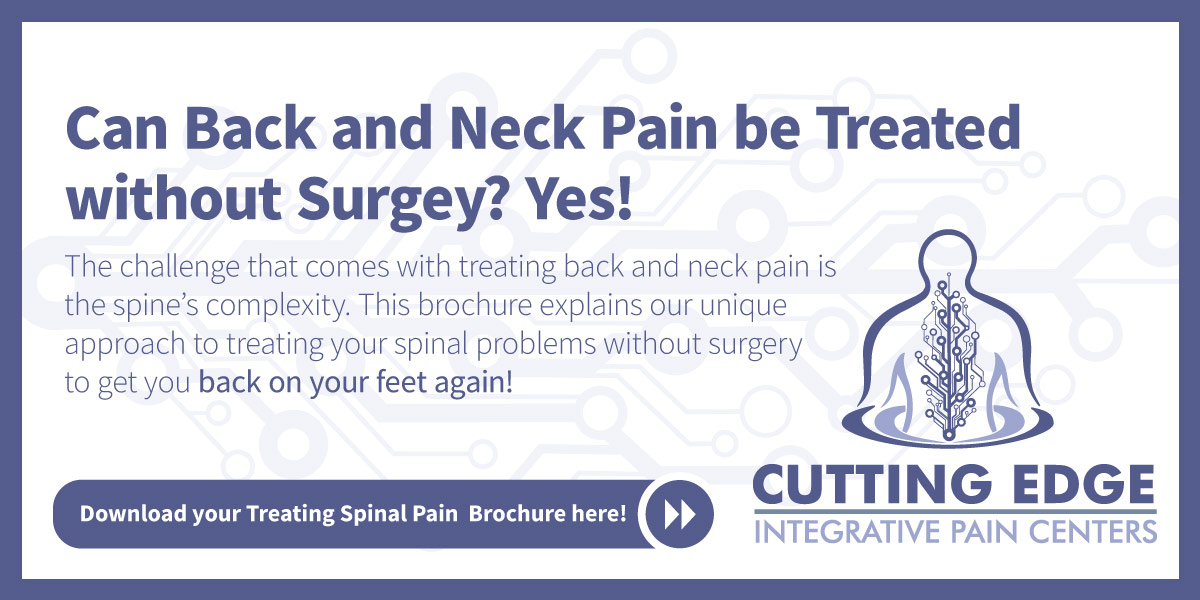Did you know that pain is the most common reason people seek the services of a healthcare professional? Whether its chronic and severe or acute and unexpected, pain severely impacts the ability for patients to function normally and lowers their overall quality of life. Severe pain can impede a patient’s ability to sleep, disrupt normal concentration, lower their appetite, restrict their mobility and cause them a great deal of anxiety. People with severe pain are also four times more likely to develop a mental illness and are susceptible to opioid dependence.
Want to Learn the Causes of Back Pain? Click Here
That is why a more holistic approach to pain management is required. Patients need a physician that will consider their mood, sleep patterns, appetite, and more when prescribing treatment plans. Unfortunately, this kind of assessment presents a tremendous challenge to doctors and healthcare staff. To get an accurate baseline for new patients, screenings and data collection must be executed — but this process can create traffic jams and impact the level of care that is delivered. Enter a new breed of innovative healthcare app.
With the advent of a new generation of healthcare apps, practices can streamline the once-tedious process of patient data collection. “We were looking for solutions that could both automate a lot of these time-consuming processes and help us better connect with our patients when they weren’t in the office,” said Dr. Orlando Landrum of Cutting Edge Integrative Pain Centers. “For behavioral health and pain, we’re rarely just seeing patients once a month, but really trying to get a better understanding of who you are and how your conditions are changing or improving.” The platform that Cutting Edge uses is NeuroFlow, a suite of tools that enable physicians to remove barriers between themselves and patients, while engaging patients in between appointments.
With NeuroFlow, Dr. Landrum and his team can track patient mood, sleep and stress levels over time. This powerful app also enables the healthcare team at Cutting Edge to assign sets of activities based on the patient’s diagnosis and receive important notifications regarding at-risk patients. Apps like this not only automate certain activities that are critical to the patient’s overall health, they serve as a constant self-care reminder and support positive behaviors. “It’s helpful for patients who can see or notice spikes in their pain but then doing techniques on the app to help manage or reduce them,” Dr. Landrum explained. “Then, in addition to assigning out activities and assessments, our medical assistant will monitor and track the progress of the patient to really help close the loop on the care.”
Once patients get in the habit of using the personalized tools and healthcare resources, they quickly see the benefits and experience promising results. In fact, according to NeuroFlow, 71% of patients on the platform reported improvements in their symptoms. Dr. Landrum said, “For one of our patients, it changed the course of her life. She had a handful of issues, both medically and personally, but she told me how the breathing exercise helped her feel more centered and reflective of where she is in the moment and not letting her negative thoughts take control.”
For patients dealing with debilitating pain, NeuroFlow and similar healthcare apps are crucial tools with which physicians can create connections and transparency into patient behavior. These connections enable an integrative approach and help physicians like Dr. Landrum to get their patients back to where they need to be, pain-free.


